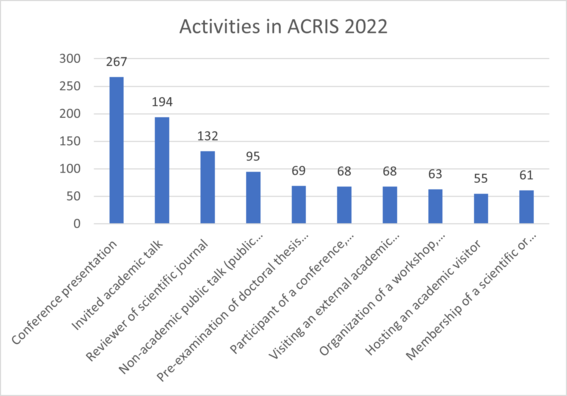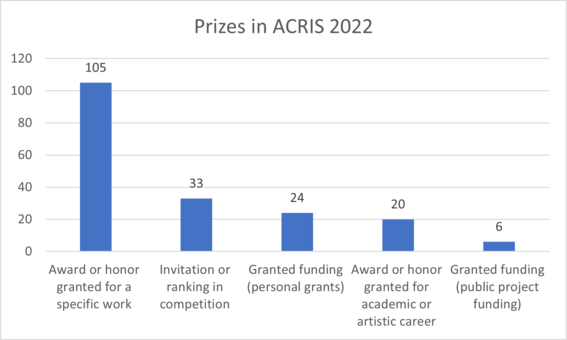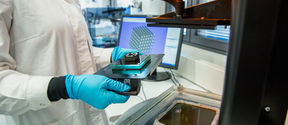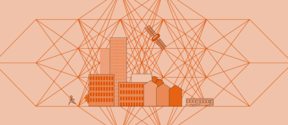Adding activities to ACRIS
You can register many different kinds of activities in ACRIS and it is a way to display other aspects of your research involvement.

Before the Covid 2019 pandemic the number of activities varied between 3000 and 4000 yearly. Since 2020 the number of activities has been around 1500 yearly.
The share of various activities has changed. Previously, visiting academic institutions and hosting an academic visitor were among the five most usual activities. As the figure shows, the number of physical visits to and from Aalto is still quite low. The number of all other activities is also lower than in the years before pandemic.
Many new subcategories of activities have been added to ACRIS to reflect changes in TENK CV and responsible research assessment. In addition, new keywords: promoting open science and promoting research integrity and ethics enable researcher to finetune their activities.

There are over 180 prizes recorded in ACRIS and visible in the research portal. This number includes over 30 so called student prizes. Supervisor can insert information on a student prize that s/he has supervised in ACRIS. Because Aalto’s prize information is reported only on the research personnel, all student prizes should start with words Student prize so they can be filtered away from the official report.
A record number of 2233 press/media appearances (in newspapers, magazines, tv, internet) were integrated to ACRIS, mostly from domestic news sources. The turbulent year is clearly visible in the topics that the media is interested in. Those Aalto researchers who have the most press/media articles from 2022 are listed below.
Russian’s attack war against Ukraine and questions about security and cybersecurity has made Professor of Practice Jarno Limnell a sought-after interviewee. Professor Peter Lund’s research interest: Future and multidisciplinary energy issues has made him a frequent commentator on alternative energy sources. Senior Scientist Iivo Vehviläinen has been interviewed regarding electricity markets, on the planned support package to compensate high electricity prices to citizens, and the volatility of prices.
Media attention has been attracted also by the first ever Finnish satellite (Assistant Professor Jaan Praks) or sustainable ways of producing and consuming clothes (Associate Professor Kirsi Niinimäki and Professor Minna Halme). Associate Professor Matti Kummu heads a research group that examines food and water systems, and other topics related to sustainability. Associate professor Risto Kosonen has been interviewed on Finnish houses, and how citizens could cope with heat waves. Professor Vesa Puttonen is a common commentator of various financial questions.
Associate Professor Mikko Möttönen is an expert on quantum computing and has received ERC Advanced Grant funding to continue to develop a new qubit which will more accurately carry out quantum operations. Professor Zhipei Sun and his photonics research group were in international news due to several advancements in science, e.g. optical computation, super-thin materials known as two-dimensional semiconductors or handedness of light.

You can register many different kinds of activities in ACRIS and it is a way to display other aspects of your research involvement.

You can showcase your press and media appearances and your prizes in ACRIS.



